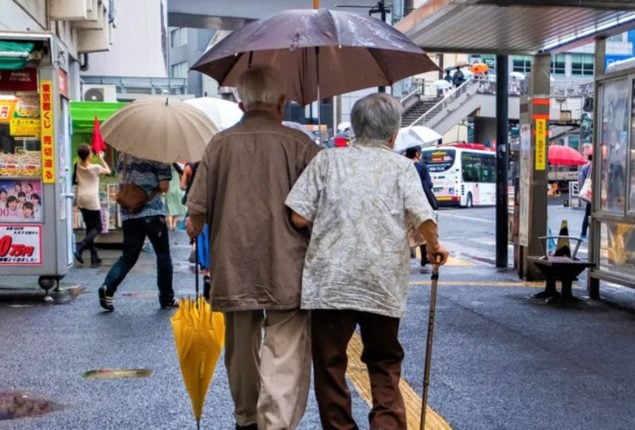
Japan’s Silver Revolution: 1 in 10 Residents Now 80 Plus
- More than 10% of Japan’s population is now aged 80 or older.
- Japan’s elderly now constitute a record-high 29.1% of the population.
- Japan’s population has been steadily decreasing since the 1980s.
Japan is grappling with a severe demographic challenge as more than 10% of its population is now aged 80 or older, according to the Ministry of Internal Affairs and Communications.
This announcement coincides with Respect for the Aged Day in the country, highlighting the concerning trend of an increasingly elderly population.
Furthermore, Japan’s elderly, defined as those aged 65 and above, now constitute a record-high 29.1% of the nation’s populace, the highest proportion globally.
The demographic crisis in Japan is further exacerbated by a declining birth rate and a shrinking workforce, potentially straining resources for pensions and healthcare services in the face of rising demand from the aging population.
Japan’s population has been steadily decreasing since the economic boom of the 1980s, with a fertility rate of only 1.3, well below the 2.1 required to maintain a stable population without immigration.
This has resulted in a decade-long trend of more deaths than births, presenting a significant challenge for the leaders of the world’s third-largest economy.
Despite Japan’s high life expectancy, which contributes to the growing elderly population, the nation has been actively encouraging seniors and stay-at-home mothers to rejoin the workforce over the past decade to address labor shortages and stimulate economic growth.
This effort has led to a record 9.12 million elderly workers in Japan, marking 19 consecutive years of growth.
Currently, workers aged 65 and above constitute over 13% of the national workforce, making Japan’s elderly employment rate one of the highest among major economies.
However, these measures alone are insufficient to counter the profound social and economic impacts of Japan’s demographic crisis.
Prime Minister Fumio Kishida cautioned in January that the country was approaching a point where it might struggle to sustain essential social functions.
He emphasized that supporting child-rearing was a top government priority and a matter that couldn’t be delayed any longer.
Notably, neighboring countries such as China, South Korea, Singapore, and Taiwan are also grappling with similar challenges, as they endeavor to incentivize young couples to have more children in the face of rising living costs and social discontent.
Read More News On
Catch all the World News, Breaking News Event and Latest News Updates on The BOL News
Download The BOL News App to get the Daily News Update & Follow us on Google News.




